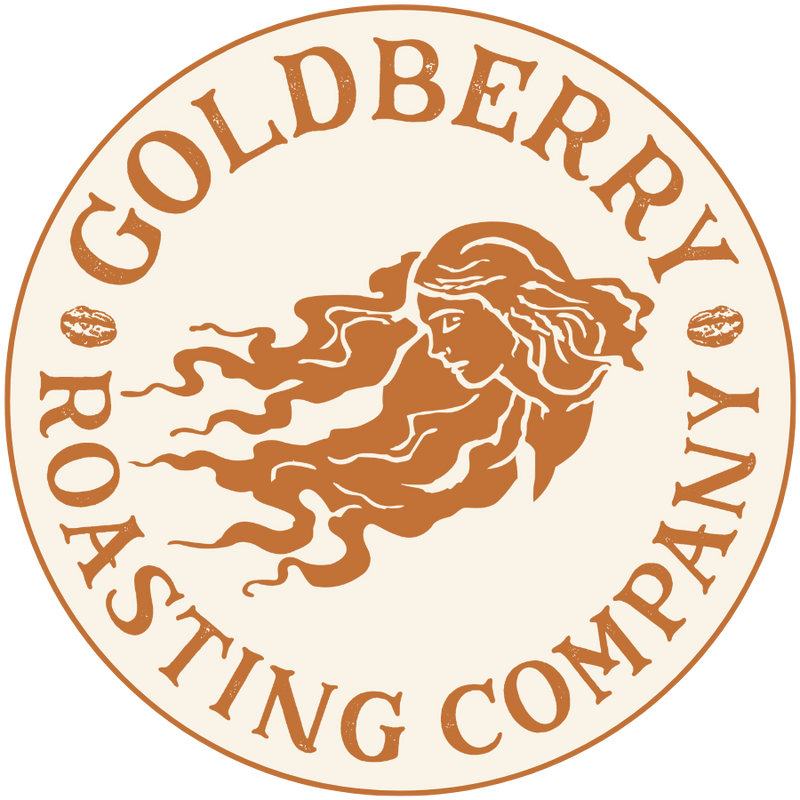How Fresh Is Your Coffee? Understanding Roast Dates
Posted on October 10 2025,

You’ve picked a beautifully labeled bag of beans, maybe from a local shop or your favorite roaster online. But as you scan the packaging, you see it: the coffee roast date. What does it mean? How fresh is fresh? And why should you care?
At Goldberry Roasting Company, we believe coffee is best when it's fresh—but not too fresh. Understanding how roast dates work is key to enjoying better flavor, longer shelf life, and a more consistent cup. Here’s everything you need to know about coffee roast dates and how they affect your daily brew.
What Is a Coffee Roast Date?
The coffee roast date is the day the green coffee beans were roasted. It tells you how many days have passed since the coffee was transformed from raw to roasted.
Unlike expiration dates, which can be vague or arbitrary, roast dates offer true insight into the freshness and peak flavor window of your coffee. If your bag doesn’t have a roast date printed on it, that’s often a red flag—especially from big-box or commercial brands.
At Goldberry, we include roast dates on every bag because we want you to know exactly what you’re drinking.
Why Roast Date Matters
1. Flavor Development Over Time
Freshly roasted coffee goes through a process called degassing, where it releases built-up carbon dioxide. While the beans are technically freshest right after roasting, they’re not ready to brew just yet. They need a little rest.
-
Days 1–3: Coffee is still degassing; flavor can be sharp or unstable.
-
Days 4–14: Sweet spot! Coffee is balanced, aromatic, and expressive.
-
Days 15–30: Still very good, especially for darker roasts or espresso.
-
Beyond 30 days: Gradual loss of brightness and complexity begins.
2. Freshness Affects Extraction
Coffee that’s too fresh (within 1–2 days of roasting) can be difficult to brew. It releases too much CO₂, which can disrupt water contact with the grounds—resulting in uneven extraction, sourness, or weak body.
On the flip side, old coffee (60+ days post-roast) can taste flat, stale, or woody—especially if stored improperly or exposed to air, light, or moisture.
How Long Does Coffee Stay Fresh?
Here’s a general freshness timeline:
| Post-Roast Age | Quality Level |
|---|---|
| 0–3 days | Too fresh for peak flavor |
| 4–14 days | Optimal brewing window (sweet spot) |
| 15–30 days | Still fresh, especially for espresso/dark |
| 30–60 days | Drinkable but declining in complexity |
| 60+ days | Stale or flat without proper storage |
Storage Tip: Keep your coffee in an airtight container, away from light, moisture, and heat. Whole beans stay fresh longer than ground.
Whole Bean vs. Ground: Timing Matters
-
Whole bean coffee stays fresh for about 3–4 weeks after roast, assuming good storage.
-
Pre-ground coffee starts losing freshness almost immediately—often within 1 week.
That’s why we always recommend grinding your coffee just before brewing. If you don’t have a grinder, we can grind your beans to order based on your preferred brew method—but we still recommend brewing them soon after.
How to Read Roast Dates When Shopping
When buying coffee online or in-store, look for:
-
A clearly printed roast date (not just “best by”)
-
A roast date within the last 7–21 days
-
Packaging that protects from air, light, and moisture
At Goldberry Roasting Company, we roast in small batches and ship quickly—often within 24 hours of roasting—so your beans arrive fresh and flavorful.
Is Fresher Always Better?
Not exactly. While freshness is crucial, brewing coffee immediately after roasting can lead to poor flavor development. Think of it like baking bread—fresh out of the oven smells amazing, but it needs a little time to rest before slicing.
Aim to brew your coffee 3–5 days after roast and within the first 3 weeks for optimal results.
The Goldberry Promise: Fresh Coffee, Roasted Right
Every bag of coffee from Goldberry Roasting Company is roasted with care, labeled with the exact coffee roast date, and designed to reach you during its peak window of freshness. We believe in transparency, quality, and helping you brew your best cup—every time.
Whether you’re a pour-over enthusiast, an espresso lover, or just looking for better morning coffee, knowing your roast date is one of the easiest ways to improve your brew.
Ready for a fresher cup?
Browse our latest roasts at goldberryroasting.com and taste the difference a roast date can make.
Want to level up your technique? Read our article on Exploring Grind Size to learn more about how texture differs in beans and grinds.
